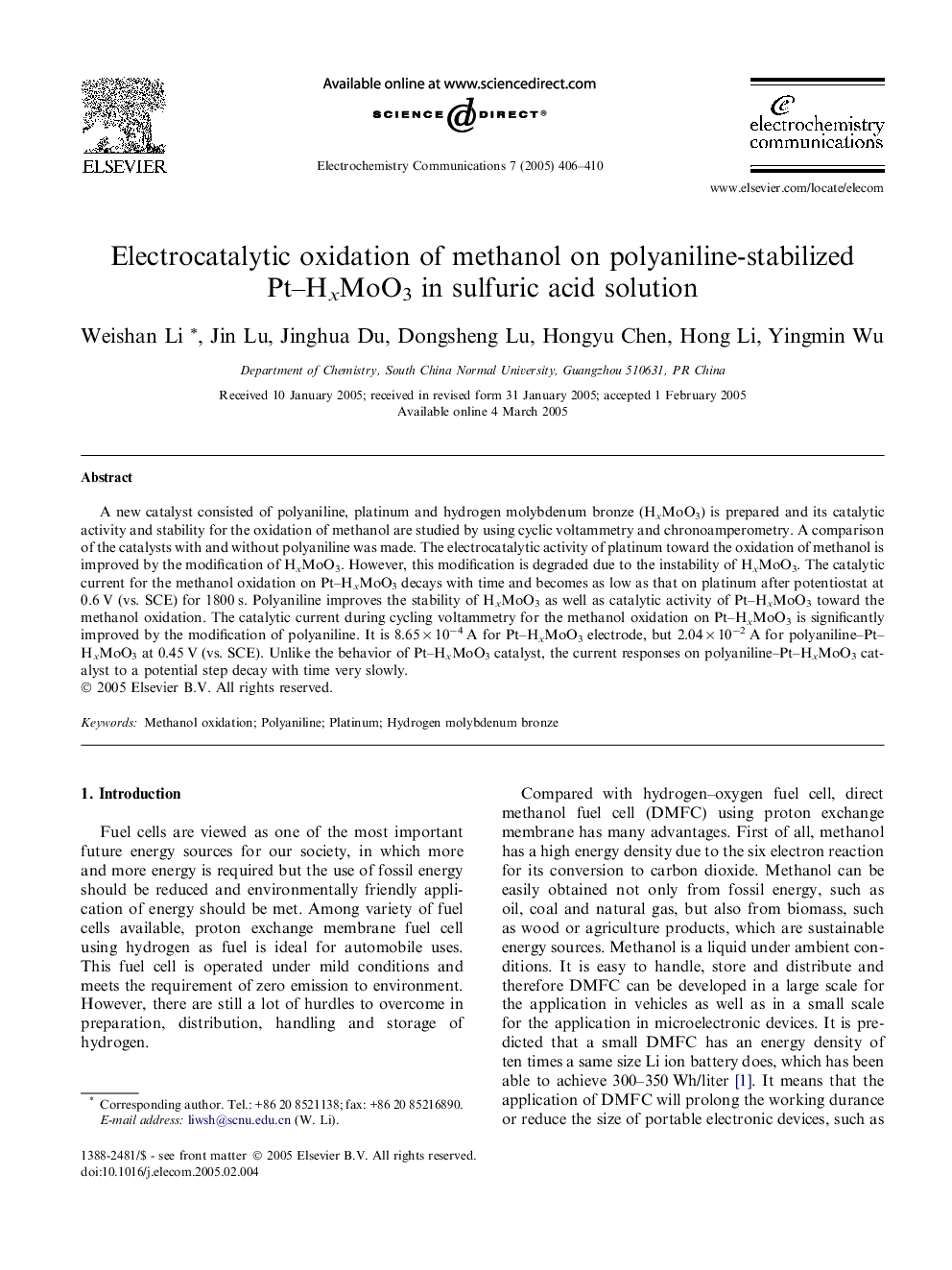| Article ID | Journal | Published Year | Pages | File Type |
|---|---|---|---|---|
| 10267550 | Electrochemistry Communications | 2005 | 5 Pages |
Abstract
A new catalyst consisted of polyaniline, platinum and hydrogen molybdenum bronze (HxMoO3) is prepared and its catalytic activity and stability for the oxidation of methanol are studied by using cyclic voltammetry and chronoamperometry. A comparison of the catalysts with and without polyaniline was made. The electrocatalytic activity of platinum toward the oxidation of methanol is improved by the modification of HxMoO3. However, this modification is degraded due to the instability of HxMoO3. The catalytic current for the methanol oxidation on Pt-HxMoO3 decays with time and becomes as low as that on platinum after potentiostat at 0.6Â V (vs. SCE) for 1800Â s. Polyaniline improves the stability of HxMoO3 as well as catalytic activity of Pt-HxMoO3 toward the methanol oxidation. The catalytic current during cycling voltammetry for the methanol oxidation on Pt-HxMoO3 is significantly improved by the modification of polyaniline. It is 8.65Â ÃÂ 10â4Â A for Pt-HxMoO3 electrode, but 2.04Â ÃÂ 10â2Â A for Polyaniline-Pt-HxMoO3 at 0.45Â V (vs. SCE). Unlike the behavior of Pt-HxMoO3 catalyst, the current responses on polyaniline-Pt-HxMoO3 catalyst to a potential step decay with time very slowly.
Related Topics
Physical Sciences and Engineering
Chemical Engineering
Chemical Engineering (General)
Authors
Weishan Li, Jin Lu, Jinghua Du, Dongsheng Lu, Hongyu Chen, Hong Li, Yingmin Wu,
